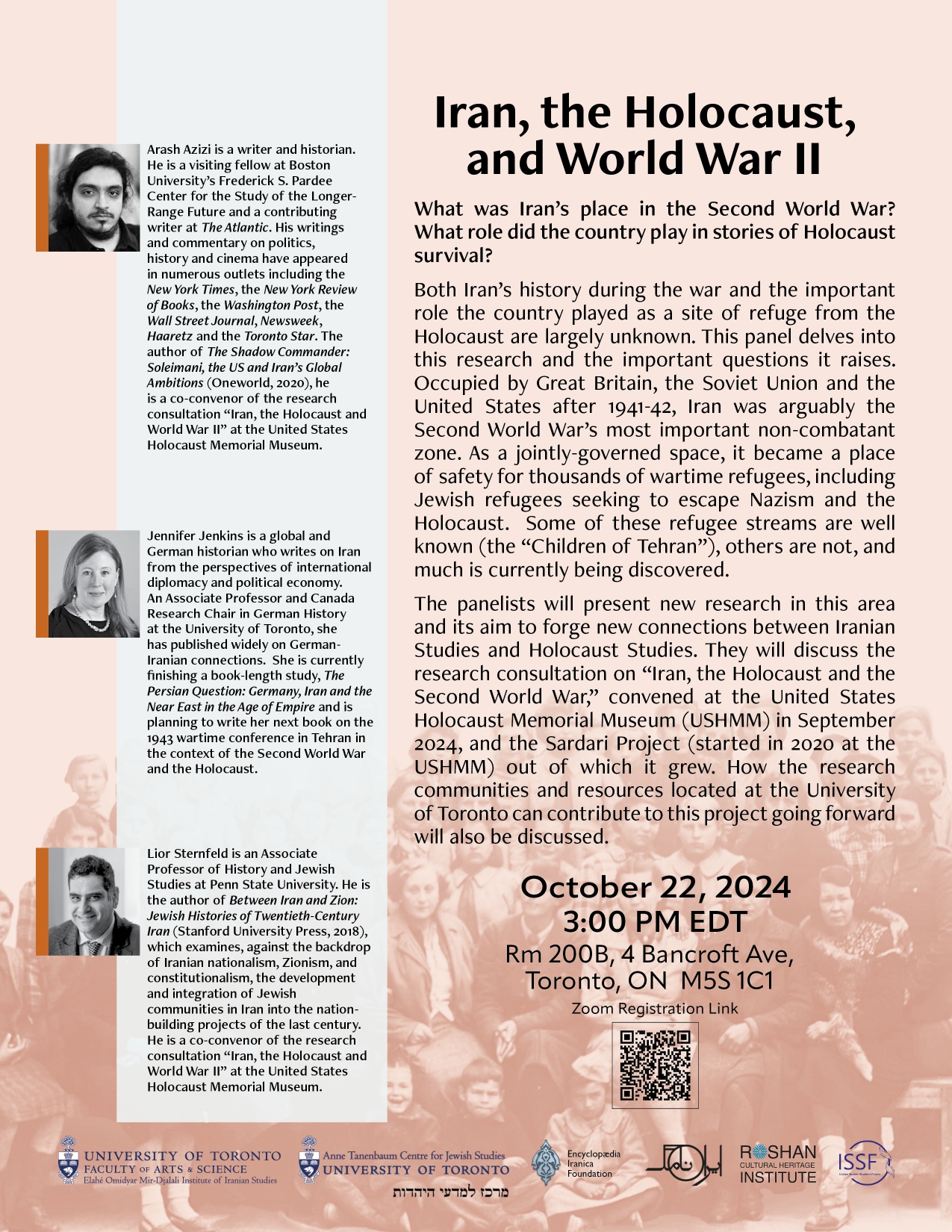Iran, the Holocaust and World War II
When and Where
Speakers
Description
Iran, the Holocaust and World War II
What was Iran’s place in the Second World War? What role did the country play in stories of Holocaust survival?
Both Iran’s history during the war and the important role the country played as a site of refuge from the Holocaust are largely unknown. This panel delves into this research and the important questions it raises. Occupied by Great Britain, the Soviet Union and the United States after 1941-42, Iran was arguably the Second World War’s most important non-combatant zone. As a jointly-governed space, it became a place of safety for thousands of wartime refugees, including Jewish refugees seeking to escape Nazism and the Holocaust. Some of these refugee streams are well known (the “Children of Tehran”), others are not, and much is currently being discovered.
The panelists will present new research in this area and its aim to forge new connections between Iranian Studies and Holocaust Studies. They will discuss the research consultation on “Iran, the Holocaust and the Second World War,” convened at the United States Holocaust Memorial Museum (USHMM) in September 2024, and the Sardari Project (started in 2020 at the USHMM) out of which it grew. How the research communities and resources located at the University of Toronto can contribute to this project going forward will also be discussed.
Bios:
Arash Azizi is a writer and historian. He is a visiting fellow at Boston University’s Frederick S. Pardee Center for the Study of the Longer-Range Future and a contributing writer at the Atlantic. His writings and commentary on politics, history and cinema have appeared in numerous outlets including the New York Times, the New York Review of Books, the Washington Post, the Wall Street Journal, Newsweek, Haaretz and the Toronto Star. The author of The Shadow Commander: Soleimani, the US and Iran’s Global Ambitions (Oneworld, 2020), he is a co-convenor of the research consultation “Iran, the Holocaust and World War II” at the United States Holocaust Memorial Museum.
Jennifer Jenkins is a global and German historian who writes on Iran from the perspectives of international diplomacy and political economy. An Associate Professor and Canada Research Chair in German History at the University of Toronto, she has published widely on German-Iranian connections. She is currently finishing a book-length study, The Persian Question: Germany, Iran and the Near East in the Age of Empire and is planning to write her next book on the 1943 wartime conference in Tehran in the context of the Second World War and the Holocaust.
Lior Sternfeld is a William J. and Charlotte K. Duddy University Endowed Fellow in the Humanities and Associate Professor of History and Jewish Studies at Penn State University. He is the author of Between Iran and Zion: Jewish Histories of Twentieth-Century Iran (Stanford University Press, 2018), which examines, against the backdrop of Iranian nationalism, Zionism, and constitutionalism, the development and integration of Jewish communities in Iran into the nation-building projects of the last century. He is a co-convenor of the research consultation “Iran, the Holocaust and World War II” at the United States Holocaust Memorial Museum.



